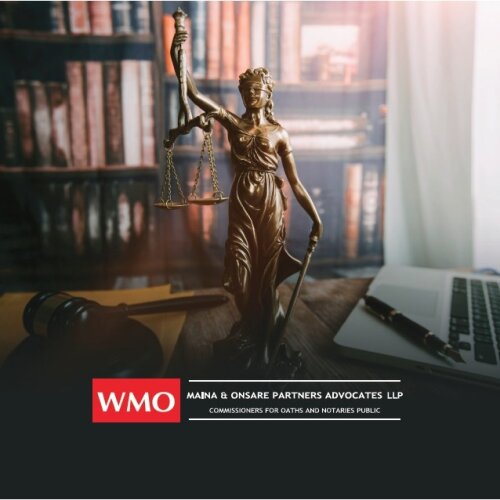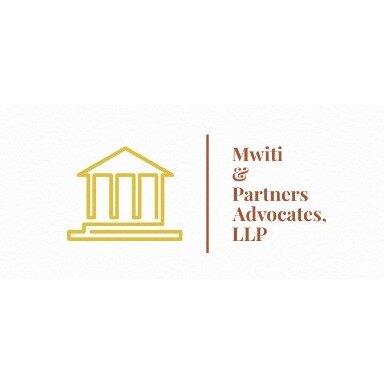Best International Lawyers in Nairobi
Share your needs with us, get contacted by law firms.
Free. Takes 2 min.
List of the best lawyers in Nairobi, Kenya
Legal guides written by Adroit Law LLP:
- Kenya Launches Digital Nomad Visa: A Gateway for Remote Workers
- Navigating the Payment System License Maze in Kenya
- Navigating the Complexities of Mining Licenses and Permits in Kenya: A Look into Artisanal and Large-Scale Operations
About International Law in Nairobi, Kenya
International law in Nairobi, Kenya, plays a significant role in regulating interactions between individuals, companies, and governments that span across national boundaries. Nairobi, being a key hub in East Africa, is often considered a strategic location for international businesses, diplomacy, and non-governmental organizations. The city hosts several international organizations and is involved in a myriad of international engagements which makes understanding the scope of international law crucial for proper legal operations within and beyond the Kenyan borders.
Why You May Need a Lawyer
There are a number of situations where you might need legal advice from an international lawyer in Nairobi, Kenya:
- Engaging in international trade or business that involves foreign entities.
- Resolving cross-border disputes related to business transactions or intellectual property.
- Immigration assistance for individuals seeking legal residency or employment within Kenya.
- International family law issues, such as international custody disputes or divorce proceedings.
- Compliance with international treaties and conventions, especially concerning environmental laws or human rights.
- Engagements with international non-governmental organizations (NGOs) or development agencies.
Local Laws Overview
Nairobi, as a part of Kenya, operates under a legal framework that accommodates both domestic laws and international agreements. Significant aspects include:
- The Constitution of Kenya, which incorporates international law by acknowledging binding international treaties.
- The Kenyan legal system is a common law system, influenced by customary and statutory law.
- Kenya is a signatory to numerous international treaties, including those on human rights and trade, making them applicable within the country.
- The judiciary is tasked with upholding these laws, often consulting both local legislation and international conventions.
Frequently Asked Questions
What are some of the international organizations based in Nairobi?
Nairobi is home to several international organizations, including the United Nations Environment Programme (UNEP) and the United Nations Human Settlements Programme (UN-Habitat).
How does one settle a cross-border commercial dispute in Nairobi?
Commercial disputes are resolved through mechanisms such as arbitration and mediation, often involving international arbitrators or local courts applying international law principles.
What are the requirements for an international business looking to establish in Nairobi?
Businesses need to comply with both domestic corporate laws and international business regulations, including registration, obtaining permits, and following tax regulations.
How can international law affect family law cases involving multiple nationalities?
International law provides frameworks like the Hague Convention on Child Abduction, which offers guidance on resolving custody disputes across borders.
What role does international law play in environmental conservation in Kenya?
International treaties, such as the Convention on Biological Diversity, guide Kenya’s policies and laws on environmental conservation and sustainable use of nature.
Is it necessary for a foreign national to engage a local lawyer for legal proceedings?
Yes, engaging a local lawyer can provide valuable insights into the domestic legal system, cultural nuances, and ensure compliance with Kenyan and international laws.
How can one ensure compliance with international trade laws when exporting from Kenya?
It's crucial to understand and adhere to international trade agreements, export-import regulations, and engage lawyers familiar with international trade law.
Are there specific legal services for expatriates in Nairobi?
Yes, many law firms specialize in expatriate services, including immigration, employment law, and property transactions.
What assistance is available for Kenyan companies looking to expand internationally?
Organizations like the Kenya Investment Authority provide consultations and legal guidance for Kenyan entities aiming to explore international markets.
How can international humanitarian laws impact NGOs operating in Kenya?
NGOs must adhere to international humanitarian laws which cover operations and ensure they meet standards for funding and engagement in crisis situations.
Additional Resources
For further assistance, consider reaching out to these resources:
- The Law Society of Kenya for a directory of qualified international lawyers.
- The Kenyan Ministry of Foreign Affairs for guidelines on treaties and international collaboration.
- UN Offices in Nairobi for support on matters related to international human rights and environmental law.
- The World Trade Organization regional office for information on trade regulations and compliance.
Next Steps
If you need legal assistance in international matters in Nairobi, start by:
- Identifying the nature of legal assistance required and gathering all relevant documents and information.
- Consulting with a qualified lawyer that specializes in international law who can provide tailored advice.
- Engaging with local and international resources to remain informed about relevant legal processes and requirements.
Lawzana helps you find the best lawyers and law firms in Nairobi through a curated and pre-screened list of qualified legal professionals. Our platform offers rankings and detailed profiles of attorneys and law firms, allowing you to compare based on practice areas, including International, experience, and client feedback.
Each profile includes a description of the firm's areas of practice, client reviews, team members and partners, year of establishment, spoken languages, office locations, contact information, social media presence, and any published articles or resources. Most firms on our platform speak English and are experienced in both local and international legal matters.
Get a quote from top-rated law firms in Nairobi, Kenya — quickly, securely, and without unnecessary hassle.
Disclaimer:
The information provided on this page is for general informational purposes only and does not constitute legal advice. While we strive to ensure the accuracy and relevance of the content, legal information may change over time, and interpretations of the law can vary. You should always consult with a qualified legal professional for advice specific to your situation.
We disclaim all liability for actions taken or not taken based on the content of this page. If you believe any information is incorrect or outdated, please contact us, and we will review and update it where appropriate.

















